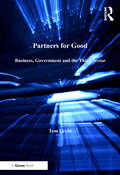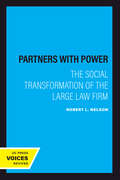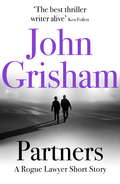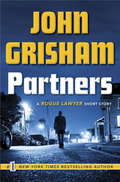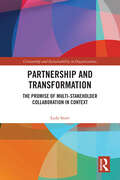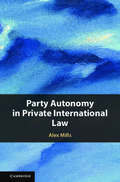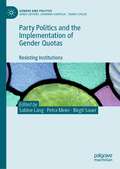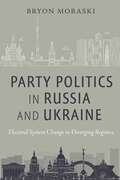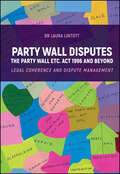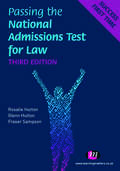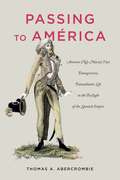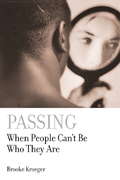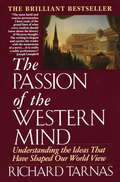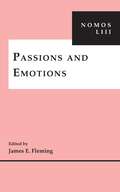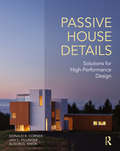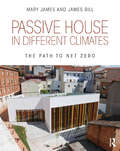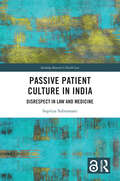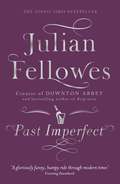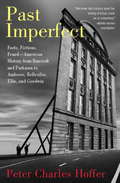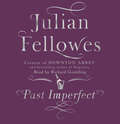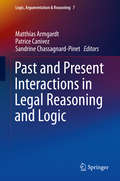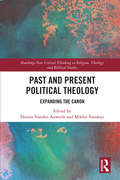- Table View
- List View
Partners for Good: Business, Government and the Third Sector
by Tom LevittAfter a century in which charities suspected the motives of cynical business people, and business people dismissed the contributions of amateur volunteers, the two sectors are coming together today as never before. The third sector has increased its business capacity through the experience gained from a decade of providing commissioned services to the public sector. Society today expects employers to do more to engage with both communities and good causes and the business case for doing so can be and is being made. But business also realises that charities do conscience better than they can and so co-working is increasingly being sought. In Partners for Good, Tom Levitt points the way to successful partnerships at local, national and international levels. There is now even an agreed international standard on what constitutes the social responsibility obligations of organisations operating in all sectors, in all parts of the world, over and above international legal frameworks. Sustainability today refers to the triple bottom line (financial, social, environmental) rather than being a green concept alone. On the down side, grants and other funding opportunities provided by governments to the third sector over the last ten years are suddenly ending and support structures are disappearing. The incentives for forging successful and sustainable win:win partnerships between businesses and charities in the new Big Society are therefore high, however demanding the time scale on offer.
Partners with Power: The Social Transformation of the Large Law Firm
by Robert L. NelsonThis title is part of UC Press's Voices Revived program, which commemorates University of California Press’s mission to seek out and cultivate the brightest minds and give them voice, reach, and impact. Drawing on a backlist dating to 1893, Voices Revived makes high-quality, peer-reviewed scholarship accessible once again using print-on-demand technology. This title was originally published in 1988.
Partners: A Rogue Lawyer Short Story
by John GrishamDiscover how Rogue Lawyer's Sebastian Rudd meets his partner and bodyguard in this thrilling short story, by master of the legal thriller John Grisham.Ten years out of law school, and running an office out of what used to be a seedy bar, Sebastian Rudd is beginning to make a name for himself - and learning that in order to get justice, you often have to cheat.When he chooses to represent Thomas Cardell, he's about to make even more enemies. At 33 years old, and with no money and a son to care for, Thomas Cardell is forced to become a drugs mule. But on his first night in the game, he's ruthlessly shot at by an undercover cop, and his only choice is to shoot back in self-defence. When the cop is killed it's Cardell's word against the other police officer on the scene, and proving Cardell innocent will be far from simple. But who ever said getting justice was easy?Featuring the characters from ROGUE LAWYER, and full of the wit and fast-paced action that makes ROGUE LAWYER so irresistibly entertaining, PARTNERS is another classic Grisham story. 350+ million copies, 45 languages, 9 blockbuster films:NO ONE WRITES DRAMA LIKE JOHN GRISHAM
Partners: A Rogue Lawyer Short Story
by John GrishamAN ORIGINAL E-SHORT • This standalone prequel to the #1 bestseller Rogue Lawyer tells the story of how Sebastian Rudd finally found someone he could trust to be his driver, bodyguard, law clerk, and partner. Sebastian Rudd, rogue lawyer, defends people other lawyers won't go near. It's controversial and dangerous work, which is why Sebastian needs his bodyguard/assistant/sidekick: Partner. So if Sebastian is just about the most unpopular lawyer in town, why is Partner so loyal to him? How did they meet? And what's the real story of this man of few words who's as good with a gun as he is with the law? The surprising answers are all in PARTNERS, John Grisham's first exclusively digital short story.Don&’t miss John Grisham&’s new book, THE EXCHANGE: AFTER THE FIRM!
Partnership and Transformation: The Promise of Multi-stakeholder Collaboration in Context (Citizenship and Sustainability in Organizations)
by Leda StottOver the last 30 years, partnership has received growing attention across a range of sectors and disciplines. Widely used to describe a relationship in which different actors pool their resources, knowledge and skills to address common problems, partnership is currently presented as central to the achievement of more inclusive and sustainable development. Rejecting "one size fits all" approaches, and mindful of different understandings of the term, Partnership and Transformation: The Promise of Multi-stakeholder Collaboration in Context, which is designed to appeal to both academics and practitioners alike, argues that partnership must be understood in relation to specific contexts and the added value it may offer for individuals, organisations and wider society. It is further suggested that the transformational potential of partnership rests critically upon a move away from purely instrumental considerations of its worth to a deeper appreciation of its intrinsic value as a process based on interpersonal relationships. A stronger balance between pragmatic and reflective dimensions of partnership can, the author claims, enhance opportunities for meaningful deliberation and productive conflict and contribute to the systems change needed for a global citizenship that embraces human well-being and stewardship of the planet.
Party Autonomy in Private International Law
by Alex MillsThis book provides an unprecedented analysis and appraisal of party autonomy in private international law - the power of private parties to enter into agreements as to the forum in which their disputes will be resolved or the law which governs their legal relationships. It includes a detailed exploration of the historical origins of party autonomy as well as its various theoretical justifications, and an in-depth comparative study of the rules governing party autonomy in the European Union, the United States, common law systems, and in international codifications. It examines both choice of forum and choice of law, including arbitration agreements and choice of non-state law, and both contractual and non-contractual legal relations. This analysis demonstrates that while an apparent consensus around the core principle of party autonomy has emerged, its coherence as a doctrine is open to question as there remains significant variation in practice across its various facets and between legal systems.
Party Politics and the Implementation of Gender Quotas: Resisting Institutions (Gender and Politics)
by Sabine Lang Birgit Sauer Petra MeierThis edited collection explores how party politics impacts the implementation of gender quotas in political representation across Europe. Contributors identify actors, institutions, and cultural legacies shape how quotas are put into practice. The volume’s subtitle, Resisting Institutions, points to the myriad ways in which parties and other institutions in Europe over time have resisted the inclusion of women into politics. As voluntary party quotas and legislative quotas gained prominence, so did strategies to undermine them. At the same time, Resisting Institutions also indicates that gender equality actors have developed ways to counter such blockages and advance the cause of parity in their legislatures. 17 country cases explore the current state of quota implementation and the effects of confronting androcentric institutions.
Party Politics in Russia and Ukraine: Electoral System Change in Diverging Regimes
by Bryon MoraskiExamines how political parties navigate major election reforms by comparing electoral system changes in Russia and Ukraine at the same time, under different regimes In Party Politics in Russia and Ukraine, Bryon Moraski provides a window into the political landscapes of Russia and Ukraine, two countries that have clashed with each other—and struggled with their own popular revolts—in recent years. Drawing on election outcomes, party nominations, parliamentary voting, and other data, Moraski highlights how ruling parties, incumbent legislators, and others have adapted to major electoral system changes in both countries.Moraski sheds light on how authoritarian regimes—and the ruling parties that support them—have used changing conditions in their countries to consolidate their power, with varying success. Exploring the swiftly changing political arena of Eastern Europe, Party Politics in Russia and Ukraine offers timely insight into the impact of elections in the twenty-first century.
Party Wall Disputes: The Party Wall etc. Act 1996 and Beyond - Legal Coherence, Disputes and Management
by Laura LintottAn accessible roadmap to the complexities of party wall disputes Party Wall Disputes: The Party Wall etc. Act 1996 and Beyond - Legal Coherence and Dispute Management meets the need for a roadmap to the main areas of law and fact relevant to party wall disputes: Statutes, including a detailed analysis of the Party Wall etc. Act 1996 and other relevant legislation,Property rights, such as rights of way, rights of support, drainage rights and rights linked to easements,Torts, such as nuisance related to noise and vibration and breaches of rights to light, andFactual matters, such as structural issues. In addition, this book maps out the available dispute management options under the Party Wall etc. Act 1996, in court as well as alternative dispute resolution methods (arbitration, mediation, medi-arb, expert determination and early neutral evaluation). The result is an invaluable resource for lawyers, party wall surveyors, construction professionals, academics and property owners who encounter or are interested in party wall disputes. “I can say with confidence that Dr Lintott has done the professions both of the law and of surveying in particular, as well as property owners, a great service in providing something of a stocktake…, where the tectonic plates of title, use of land, statute and common law, easements, planning and construction codes, rights, liabilities and obligations all meet. … She is mindful of the reality that party wall practice is ultimately driven by mutual proprietorial and essentially practical considerations …” —THE EARL OF LYTTON
Pasando paginas: La Historia De Mi Vida
by Sonia SotomayorAl ser la primera mujer latina en ser jueza del Tribunal Supremo de Estados Unidos, Sonia Sotomayor es una inspiración para los jóvenes de todas las partes del mundo en la lucha por lograr sus sueños. Pero ¿qué la inspiró a ella? Para la joven Sonia, la respuesta es: ¡los libros! Eran su espejo, sus mapas, sus amigos y sus maestros. Los libros la ayudaron a conectar con su familia en Nueva York y en Puerto Rico, a aceptar y entender el diagnóstico de su diabetes, a hacer frente a la muerte de su padre, a descubrir los secretos del mundo y a soñar con un futuro en el que todo es posible. En Pasando páginas, Sonia Sotomayor comparte su amor por los libros con una nueva generación de lectores, estimulándolos a leer, a maravillarse y a realizar sus sueños. Acompañada del arte vibrante de Lulu Delacre, la historia de la vida de Sonia Sotomayor muestra a los lectores que el mundo está lleno de promesas y posibilidades; lo único que necesitan es pasar la página.
Passing the National Admissions Test for Law (Student Guides to University Entrance Series)
by Rosalie Hutton Glenn Hutton Fraser SampsonThe LNAT entrance exam is now a requirement at many leading UK universities. This fully revised and up to date guide provides an in-depth understanding of both Parts A and B of the test. The rationale and use of critical reasoning tests is explained, including the style and format of the multiple-choice questions used. A practice test is provided which follows the LNAT approach, together with explanations of both the correct and incorrect answers. This edition contains new questions and answers and a new section on applying to university to read law.
Passing to América: Antonio (Née María) Yta’s Transgressive, Transatlantic Life in the Twilight of the Spanish Empire
by Thomas A. AbercrombieIn 1803 in the colonial South American city of La Plata, Doña Martina Vilvado y Balverde presented herself to church and crown officials to denounce her husband of more than four years, Don Antonio Yta, as a “woman in disguise.” Forced to submit to a medical inspection that revealed a woman’s body, Don Antonio confessed to having been María Yta, but continued to assert his maleness and claimed to have a functional “member” that appeared, he said, when necessary.Passing to América is at once a historical biography and an in-depth examination of the sex/gender complex in an era before “gender” had been divorced from “sex.” The book presents readers with the original court docket, including Don Antonio’s extended confession, in which he tells his life story, and the equally extraordinary biographical sketch offered by Felipa Ybañez of her “son María,” both in English translation and the original Spanish. Thomas A. Abercrombie’s analysis not only grapples with how to understand the sex/gender system within the Spanish Atlantic empire at the turn of the nineteenth century but also explores what Antonio/María and contemporaries can teach us about the complexities of the relationship between sex and gender today.Passing to América brings to light a previously obscure case of gender transgression and puts Don Antonio’s life into its social and historical context in order to explore the meaning of “trans” identity in Spain and its American colonies. This accessible and intriguing study provides new insight into historical and contemporary gender construction that will interest students and scholars of gender studies and colonial Spanish literature and history.
Passing to América: Antonio (Née María) Yta’s Transgressive, Transatlantic Life in the Twilight of the Spanish Empire
by Thomas A. AbercrombieIn 1803 in the colonial South American city of La Plata, Doña Martina Vilvado y Balverde presented herself to church and crown officials to denounce her husband of more than four years, Don Antonio Yta, as a “woman in disguise.” Forced to submit to a medical inspection that revealed a woman’s body, Don Antonio confessed to having been María Yta, but continued to assert his maleness and claimed to have a functional “member” that appeared, he said, when necessary.Passing to América is at once a historical biography and an in-depth examination of the sex/gender complex in an era before “gender” had been divorced from “sex.” The book presents readers with the original court docket, including Don Antonio’s extended confession, in which he tells his life story, and the equally extraordinary biographical sketch offered by Felipa Ybañez of her “son María,” both in English translation and the original Spanish. Thomas A. Abercrombie’s analysis not only grapples with how to understand the sex/gender system within the Spanish Atlantic empire at the turn of the nineteenth century but also explores what Antonio/María and contemporaries can teach us about the complexities of the relationship between sex and gender today.Passing to América brings to light a previously obscure case of gender transgression and puts Don Antonio’s life into its social and historical context in order to explore the meaning of “trans” identity in Spain and its American colonies. This accessible and intriguing study provides new insight into historical and contemporary gender construction that will interest students and scholars of gender studies and colonial Spanish literature and history.This book is freely available in an open access edition thanks to TOME (Toward an Open Monograph Ecosystem)—a collaboration of the Association of American Universities, the Association of University Presses and the Association of Research Libraries—and the generous support of New York University. Learn more at the TOME website: openmonographs.org.
Passing: When People Can't Be Who They Are
by Brooke KroegerThrough the provocative stories of six contemporary passers, and examples from history and literature, a renowned journalist illuminates passing as a strategy for bypassing prejudice and injustice
Passion of the Western Mind: Understanding the Ideas That Have Shaped Our World View
by Richard Tarnas"[This] magnificent critical survey, with its inherent respect for both the 'Westt's mainstream high culture' and the 'radically changing world' of the 1990s, offers a new breakthrough for lay and scholarly readers alike....Allows readers to grasp the big picture of Western culture for the first time."SAN FRANCISCO CHRONICLE. Here are the great minds of Western civilization and their pivotal ideas, from Plato to Hegel, from Augustine to Nietzsche, from Copernicus to Freud. Richard Tarnas performs the near-miracle of describing profound philosophical concepts simply but without simplifying them. Ten years in the making and already hailed as a classic, THE PASSION OF THE WESTERN MIND is truly a complete liberal education in a single volume.
Passions and Emotions: NOMOS LIII (NOMOS - American Society for Political and Legal Philosophy #16)
by James E. Fleming Cara ShoresThroughout the history of moral, political, and legal philosophy,many have portrayed passions and emotions as beingopposed to reason and good judgment. At the same time,others have defended passions and emotions as temperingreason and enriching judgment, and there is mountingempirical evidence linking emotions to moral judgment. InPassions and Emotions, a group of prominent scholars inphilosophy, political science, and law explore three clustersof issues: “Passion & Impartiality: Passions & Emotions inMoral Judgment”; “Passion & Motivation: Passions & Emotionsin Democratic Politics”; and “Passion & Dispassion:Passions & Emotions in Legal Interpretation.” This timely,interdisciplinary volume examines many of the theoreticaland practical legal, political, and moral issues raised by suchquestions.
Passive House Details: Solutions for High-Performance Design
by Alison G. Kwok Donald B. Corner Jan C. FillingerPassive House Details introduces the concepts, principles, and design processes of building ultralow-energy buildings. The objective of this book is to provide design goals, research, analysis, systems, details, and inspiring images of some of the most energy-efficient, carbon-neutral, healthy, and satisfying buildings currently built in the region. Other topics included: heat transfer, moisture management, performance targets, and climatic zones. Illustrated with more than 375 color images, the book is a visual catalog of construction details, materials, and systems drawn from projects contributed from forty firms. Fourteen in-depth case studies demonstrate the most energy-efficient systems for foundations, walls, floors, roofs, windows, doors, and more.
Passive House in Different Climates: The Path to Net Zero
by Mary James James BillPassive House in Different Climates introduces the seven Passive House principles, to help you create super-insulated, airtight buildings that require minimal energy use to heat, cool, dehumidify, and ventilate, with superior indoor air quality and year-round comfort. Seventeen case studies in four climate zones---marine, cold and very cold, mixed-dry and hot-dry, and mixed-humid and hot-humid---and in ten countries, show you how to achieve net-zero energy regardless of where you’re building or what type of building is required. Includes more than 150 color illustrations.
Passive Patient Culture in India: Disrespect in Law and Medicine (Routledge Research in Health Law)
by Supriya SubramaniIn a society shaped by deep inequalities, where healthcare and legal systems often reinforce class, caste, religion, and gender hierarchies, this book offers a powerful examination of patienthood in India. Through its critical approach, it seeks to disrupt binaries—such as universalistic and particularistic values and data versus theory—while decentering normative discourses by foregrounding lived experiences within the context. It offers philosophical and conceptual insights that extend far beyond local variations and contexts, challenging dominant narratives in global discourses on medical decision-making and concepts such as informed consent, autonomy, and respect.This book critiques the archetype of the “passive patient” entrenched in both medicine and law in India — an image that undermines agency, diminishes self-respect, and sustains a culture of disrespect. Chapters of the book unpacks the intersections of power, social categories, and patienthood, exposing how marginalized communities face everyday indignities in healthcare and law. It explores law and medicine’s role in maintaining presumed 'passive patient' archetype, especially through legal judgements and healthcare encounters. This book advocates for reimagining patienthood as centered on self-respect, recognition, and agency, arguing that the “passive patient” is not an isolated phenomenon but an outcome of broader, oppressive structures.Contributing to robust debates in medical sociology, bioethics, and social justice, this book is essential reading for those interested in the intersections of these fields, along with applied ethics, health services research, and law.This book is freely available as downloadable Open Access PDFs at http://www.taylorfrancis.com under a Creative Commons Attribution-Non Commercial-No Derivatives (CC-BY-NC-ND) 4.0 license.
Past Imperfect: A novel by the creator of DOWNTON ABBEY and BELGRAVIA
by Julian FellowesA SUNDAY TIMES BESTSELLERFROM THE CREATOR OF DOWNTON ABBEY and BELGRAVIA'A gloriously funny ride through modern times' Evening StandardDamian Baxter is very, very rich. But he has but one concern, which is becoming more urgent at the weeks go by: who should inherit his fortune. A letter from an ex-girlfriend suggests that, as a young man, Damian may have fathered a child, but the letter is anonymous. Finding the truth will not be easy - and the only man who Damian can turn to for help also happens to be his sworn enemy... 'A must-read' Sunday Express'An elegant satire, it offers an entertaining commentary on our times and a heartfelt lament for a kinder, more courteous Britain' Tatler'A witty take on the world as it was and is now' Woman & Home
Past Imperfect: A novel by the creator of DOWNTON ABBEY and BELGRAVIA
by Julian FellowesA SUNDAY TIMES BESTSELLERFROM THE CREATOR OF DOWNTON ABBEY and BELGRAVIA 'A gloriously funny ride through modern times' Evening Standard Damian Baxter is very, very rich. But he has but one concern, which is becoming more urgent at the weeks go by: who should inherit his fortune. A letter from an ex-girlfriend suggests that, as a young man, Damian may have fathered a child, but the letter is anonymous. Finding the truth will not be easy - and the only man who Damian can turn to for help also happens to be his sworn enemy... 'A must-read' Sunday Express'An elegant satire, it offers an entertaining commentary on our times and a heartfelt lament for a kinder, more courteous Britain' Tatler'A witty take on the world as it was and is now' Woman & Home
Past Imperfect: Facts, Fictions, Fraud American History from Bancroft and Parkman to Ambrose, Bellesiles, Ellis, and
by Peter Charles HofferWoodrow Wilson, a practicing academic historian before he took to politics, defined the importance of history: "A nation which does not know what it was yesterday, does not know what it is today. " He, like many men of his generation, wanted to impose a version of America's founding identity: it was a land of the free and a home of the brave. But not the braves. Or the slaves. Or the disenfranchised women. So the history of Wilson's generation omitted a significant proportion of the population in favor of a perspective that was predominantly white, male and Protestant. That flaw would become a fissure and eventually a schism. A new history arose which, written in part by radicals and liberals, had little use for the noble and the heroic, and that rankled many who wanted a celebratory rather than a critical history. To this combustible mixture of elements was added the flame of public debate. History in the 1990s was a minefield of competing passions, political views and prejudices. It was dangerous ground, and, at the end of the decade, four of the nation's most respected and popular historians were almost destroyed by it: Michael Bellesiles, Doris Kearns Goodwin, Stephen Ambrose and Joseph Ellis. This is their story, set against the wider narrative of the writing of America's history. It may be, as Flaubert put it, that "Our ignorance of history makes us libel our own times. " To which he could have added: falsify, plagiarize and politicize, because that's the other story of America's history.
Past Imperfect: From the creator of DOWNTON ABBEY and THE GILDED AGE
by Julian FellowesDamian Baxter is very, very rich - and he's dying. He lives alone in a big house in Surrey, looked after by a chauffeur, butler, cook and housemaid. He has but one concern: who should inherit his fortune...PAST IMPERFECT is the story of a quest. Damian Barker wishes to know if he has a living heir. By the time he married in his late thirties he was sterile (the result of adult mumps), but what about before that unfortunate illness? He was not a virgin. Had he sired a child? A letter from a girlfriend from these times suggests he did. But the letter is anonymous.Damian contacts someone he knew from their days at university. He gives him a list of girls he slept with and sets him a task: find his heir...
Past and Present Interactions in Legal Reasoning and Logic
by Patrice Canivez Matthias Armgardt Sandrine Chassagnard-PinetThis volume explores the relation between legal reasoning and logic from both a historical and a systematic perspective. The topics addressed include, among others, conditional legal acts, disjunctions in legal acts, presumptions and conjectures, conflicts of values, Jørgensen´s Dilemma, the Rhetor´s Dilemma, the theory of legal fictions and the categorization of contracts. The unifying problematic of these contributions concerns the conditional structures and, more particularly, the relationship between legal theory and legal reasoning in the context of conditions. The contributions in this work constitute the first results of the ANR-DFG joint research project "JuriLog" (Jurisprudence and Logic), which aims at fostering the cooperation between legal scholars and philosophers. On the one hand, lawyers and legal scholars have an interest in emphasizing the logical character of legal reasoning. In this respect, the present enquiry examines the question of how logic, especially newer forms of dialogical logic, can be made fruitful as a significant area of philosophy for jurisprudence and legal practice. On the other hand, logicians find in legal reasoning a striving towards clear definitions and inference-procedures that is relevant to their discipline. In order to fully understand such reciprocal relationships, it is necessary to bridge the gap between law, logic and philosophy in contemporary academic research. The essays collected in this volume all work towards this common goal. The book is divided in three sections. In the first part, the strong relation between Roman Law and logic is explored with respect to the analysis of disjunctive statements in legal acts. The second part focuses on Leibniz´s legal theory. The third part, finally, is dedicated to current interactions between law and logic.
Past and Present Political Theology: Expanding the Canon (Routledge New Critical Thinking in Religion, Theology and Biblical Studies)
by Dennis Vanden Auweele Miklos VassányiThis book demonstrates how discussions of Political Theology have been a constant feature throughout philosophical modernity and that they continue to impact contemporary political debates. By tracing the historical roots and detailing the contemporary outworking of Political Theology in Europe, it contends that this growing field requires a broader "canon" in order for it to mature. Political Theology is shown here to be about the diversity of relationships between religious beliefs and political orientations. First engaging with historical debates, chapters re-examine the relationship between personal conviction and societal orientation on such topics as the will to believe, evil, individualism, the relationship between church and state, and the relationship between belief and natural science. The volume then establishes the relevance of these debates for the present day. As such, it invites engagement on the back and forth between religion and politics in a liberal democracy and a communist state, on how communitarianism relates to religious language, on the diversity of Christian and Jewish political theology, and the politics of toleration. By broadening out the field of Political Theology this book offers the reader a more nuanced understanding of its sustained influence on public life. As such it will be of interest to academics working in Political Theology, but also Theology, Philosophy and Political Science more generally.
